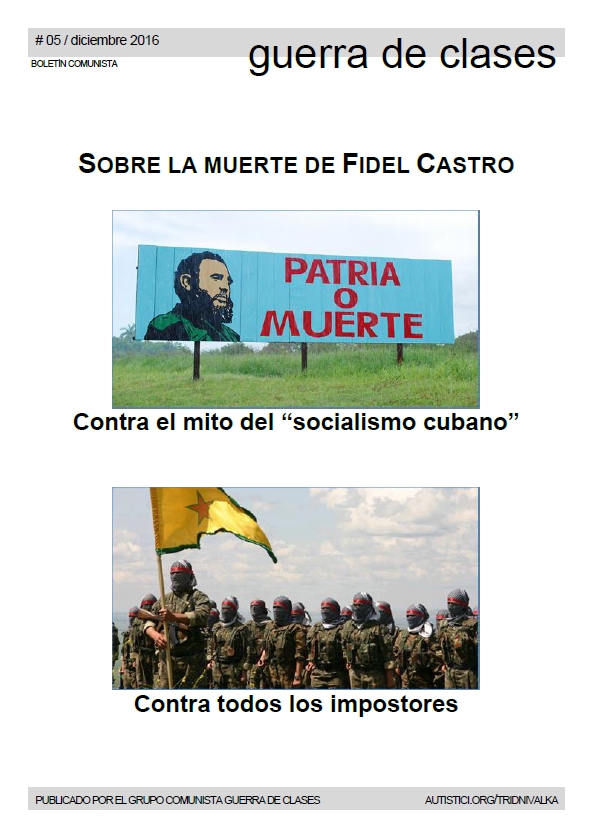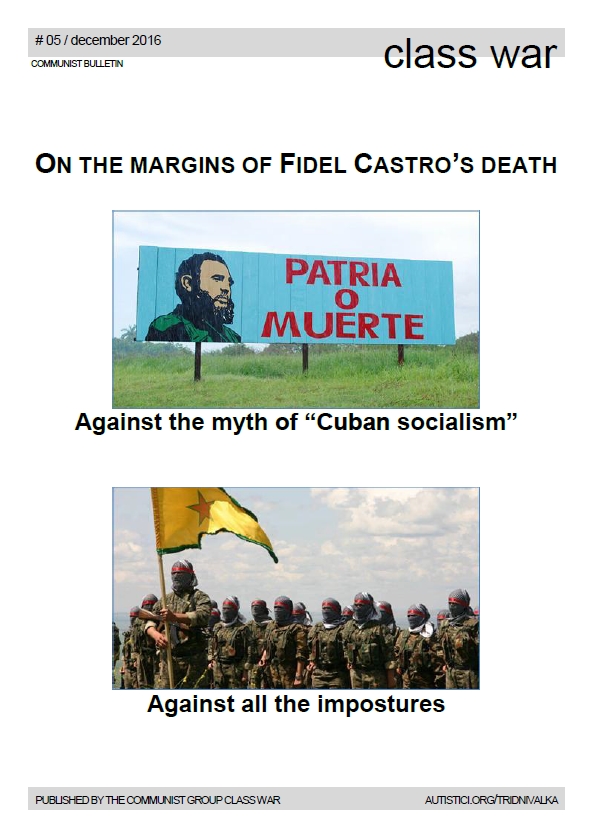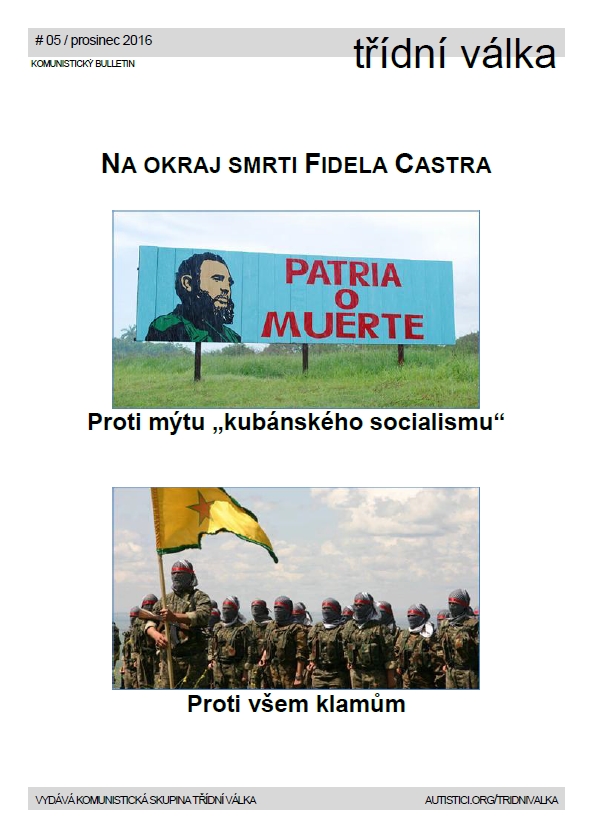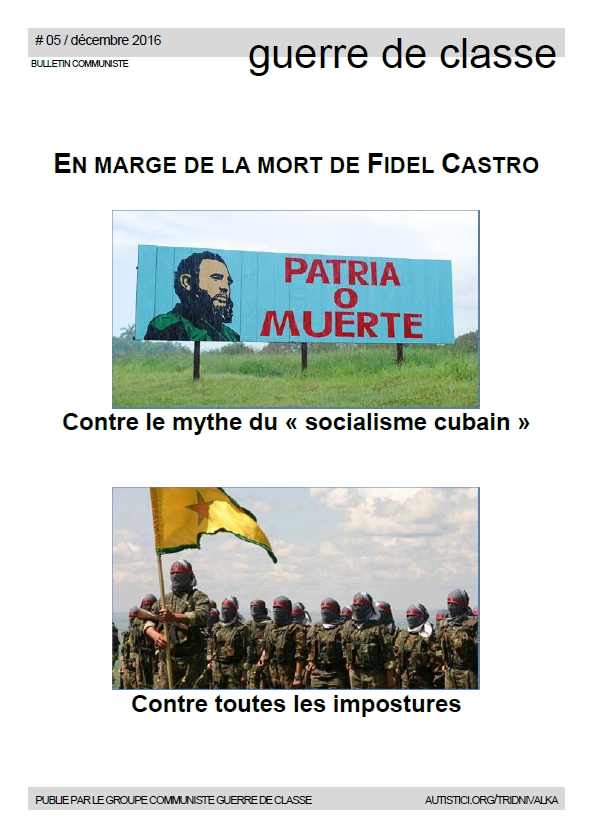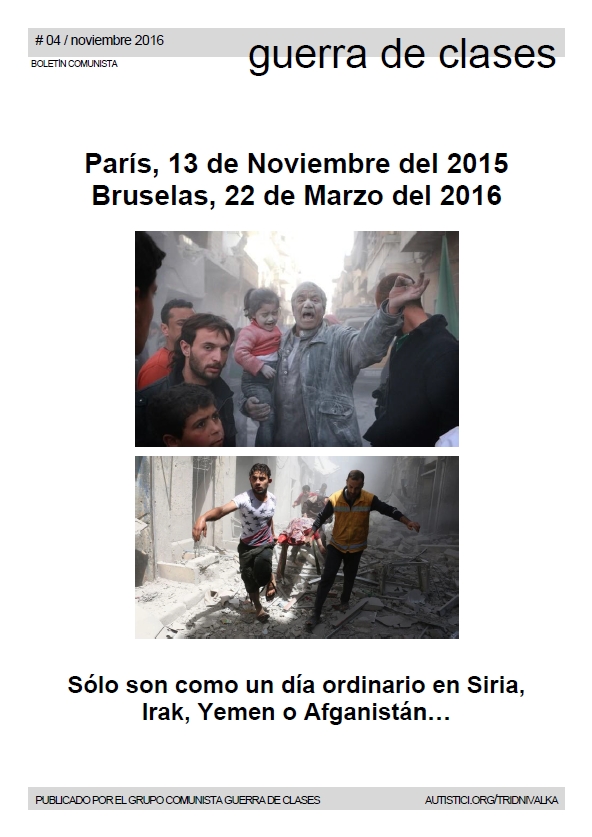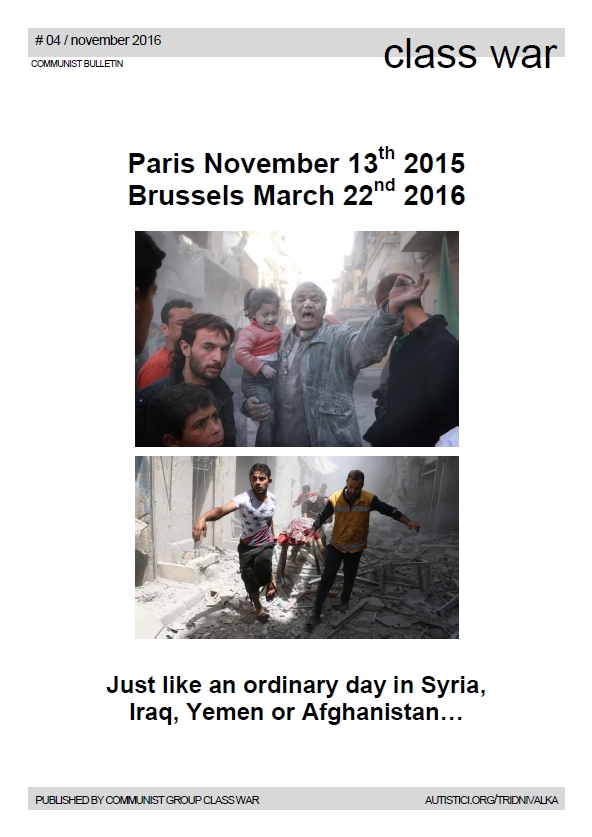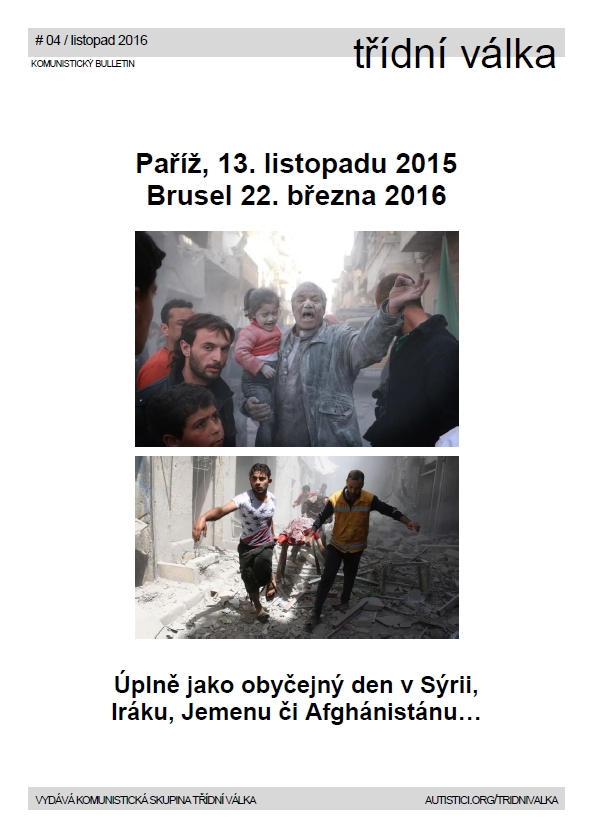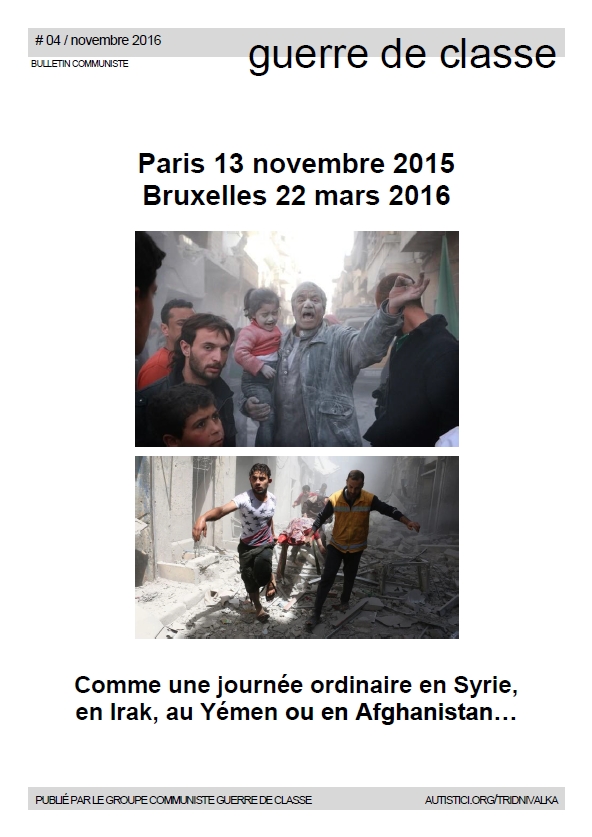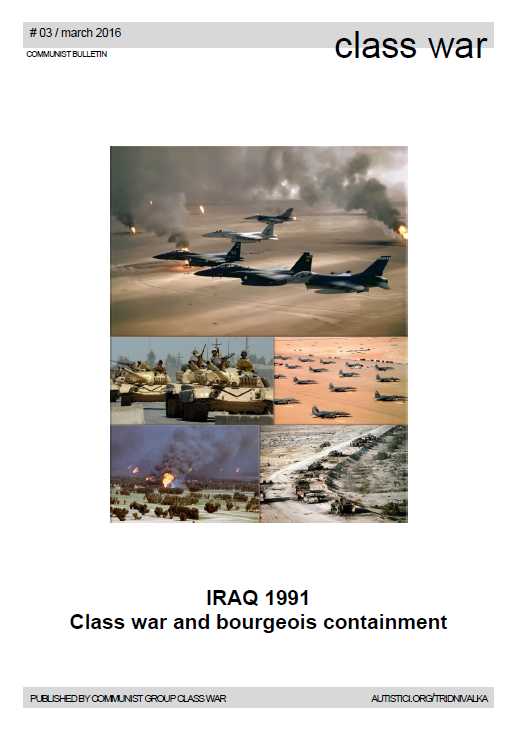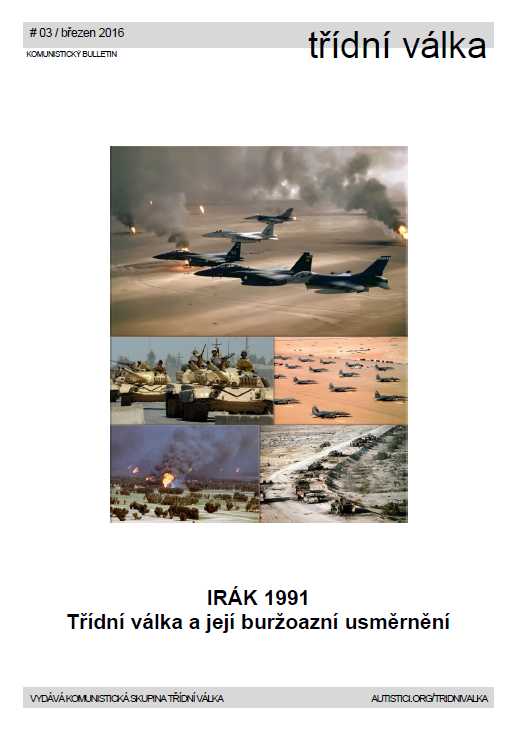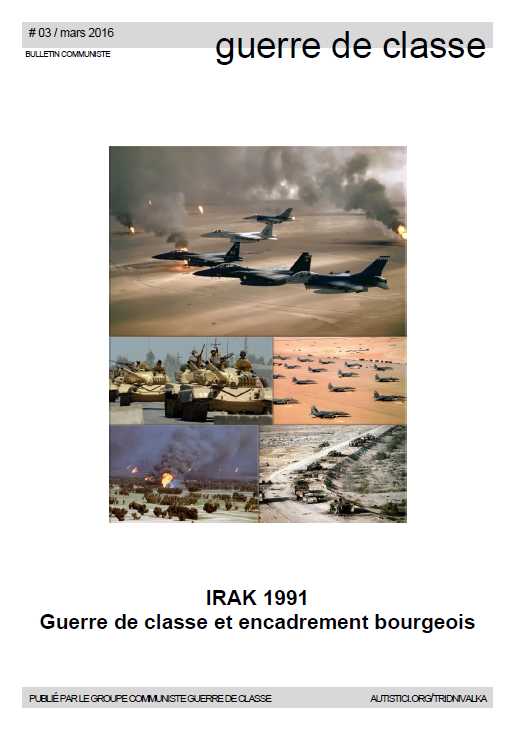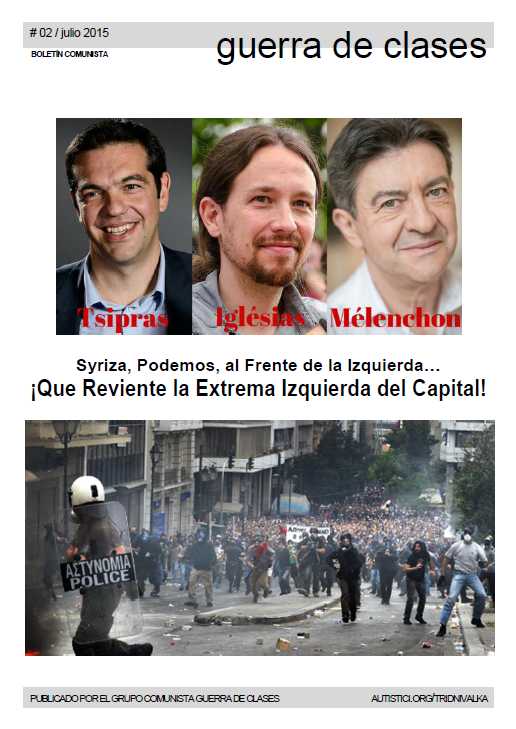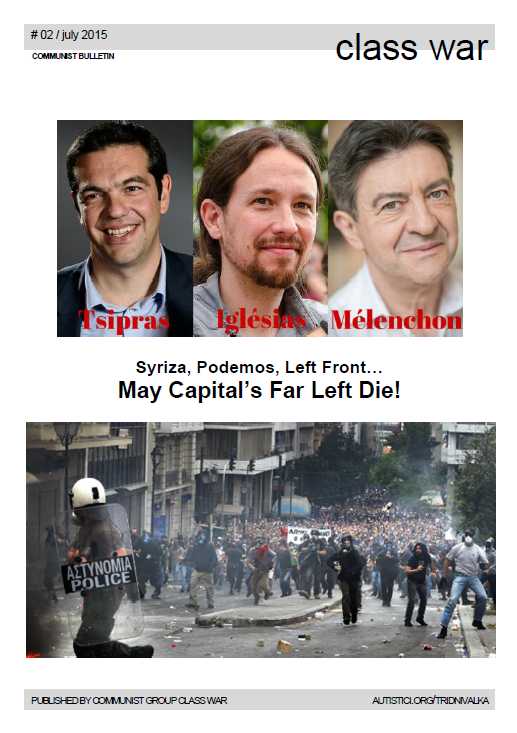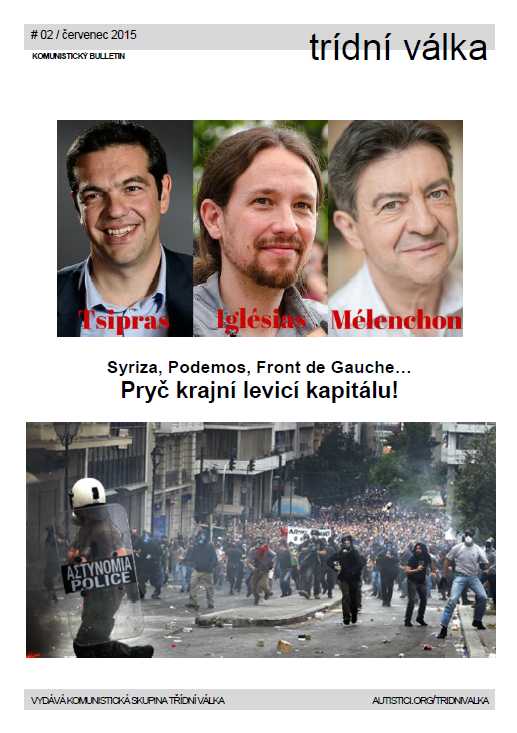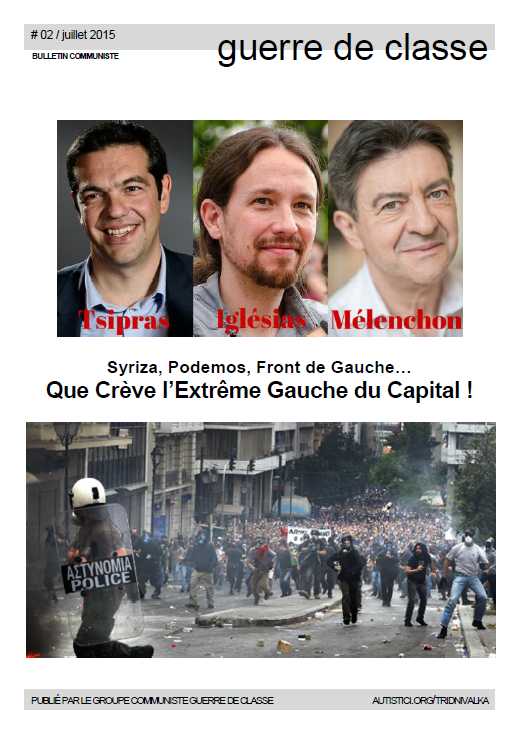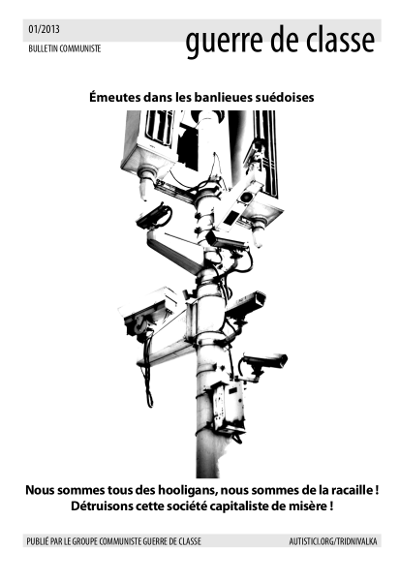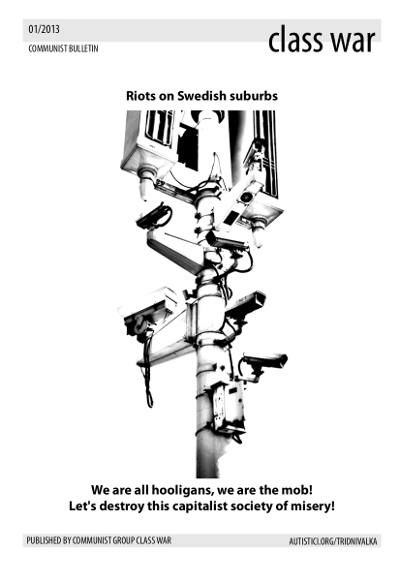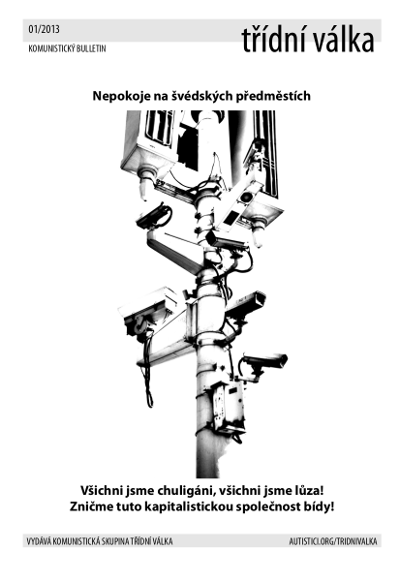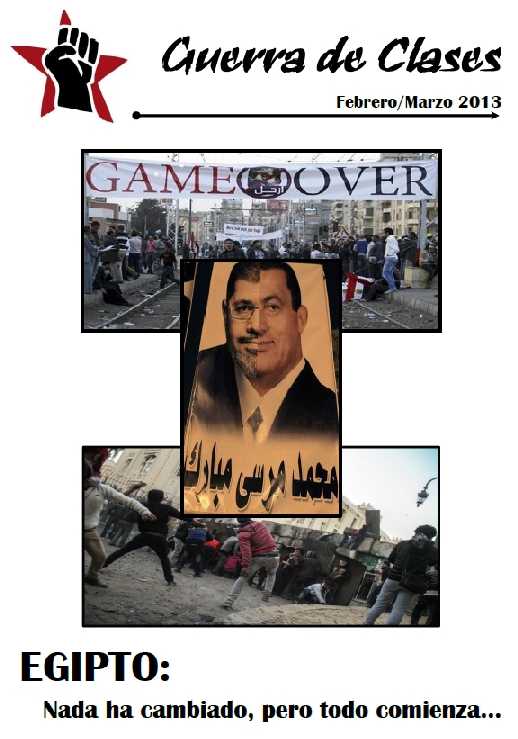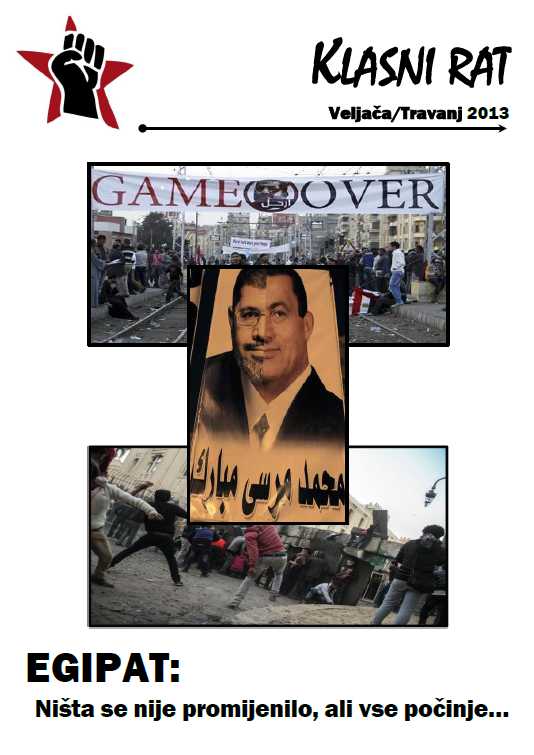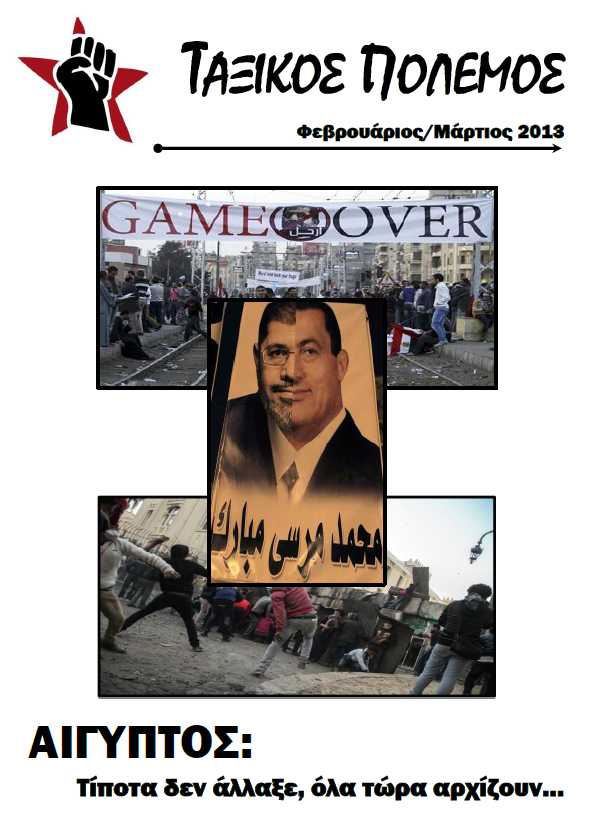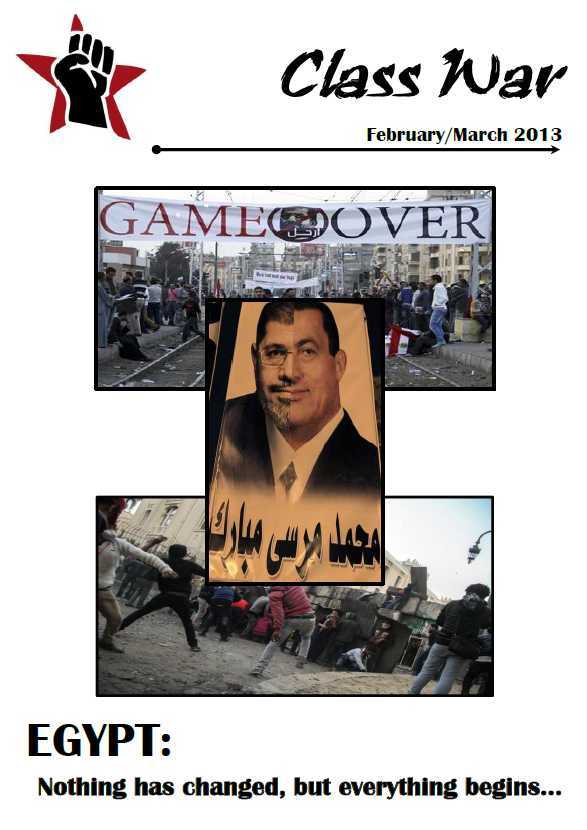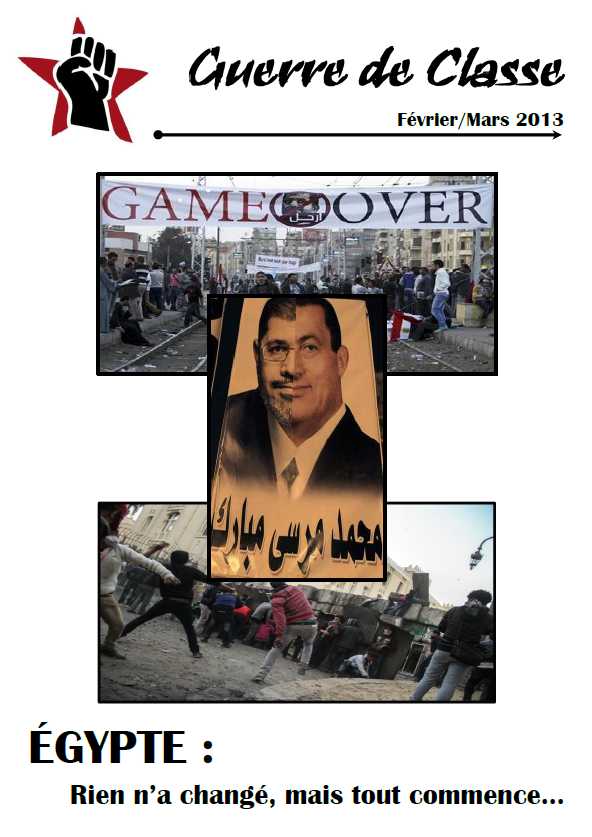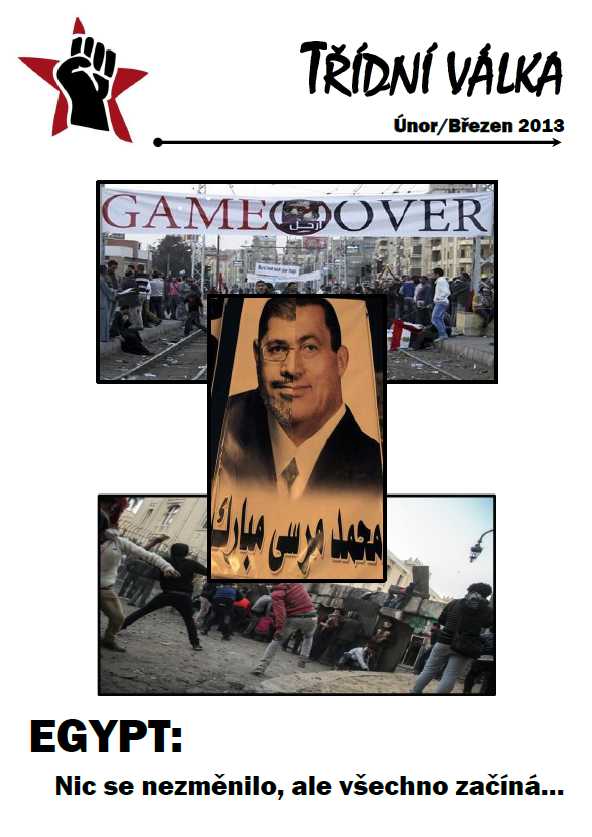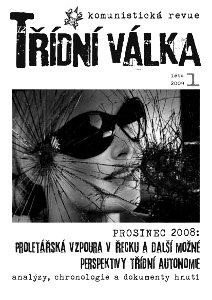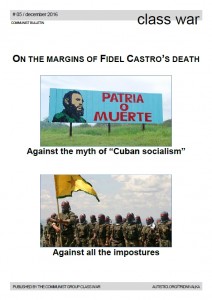 | Čeština | English | Français |
| Čeština | English | Français |
The Cuban national television has just announced this November 26th, 2016 the death of Fidel Castro, who died at the “venerable” age of 90. This counterrevolutionary old fogey will be celebrated in Cuba, where nine days of national mourning is declared, as well as all over the world by the bourgeois international left (i.e. the left and far left bourgeoisie).
We add here our small contribution to the communist critique while publishing a text (that we also translated in English and in Czech) issued in the years 1990 in the central review of the Internationalist Communist Group (ICG) that denounces the eminently counterrevolutionary nature and character of the Cuban “Communist” Party, the “barbudos” and its “Lider Maximo”: Fidel Castro…
We insist at the same time on reaffirming that there has never been any “communist country” in the world and in history. The USSR as well as its satellites of Eastern Europe, China or Vietnam, Albania or Nicaragua, North Korea or Kampuchea, and even nowadays Venezuela, Bolivia, Ecuador and Rojava, were nothing else and even at the beginning of this 21st century they are but a representation of the gross myth of “socialism in one country”, dear to Marxists-Leninists and Stalinists of all kinds. All of them are capitalist from beginning to the end! Because where there’s wage labour, there inevitably exists also Capital and it can’t be otherwise just because there’s also a “Marxist” ideology’s garb, re-organisation of the bourgeoisie through a political party and state and its efforts (with no lasting chance to succeed) to deform capitalist laws of market, competition and value.
#
After reading the second text presented here, “A Letter to ‘Rojavist’ Friends”, some will say that it brings nothing new to the debate. It is possible. But from our point of view it represents an excellent summary of the so far developed argumentation. Published in May 2016 under the name TKGV it attracted our attention for its clear reasoning and well-structured critical point of view to the currently so fashionable support to the “autonomous region of Rojava”. As we share the positions developed in it and as it is neither the first critical text about this issue we publish, nor the first introduction we write on it, there is probably no need to explain our posture further. We refer our readers to older posts on our blog that will give them a more complex idea about the problematic.
Instead of that we would like to put into question two points from the text, two themes connected with the “Rojava question” but more general and therefore in some way more important.
The first one concerns the “Rojavist friends”, that is to say those to whom the letter is addressed. The authors presuppose that there are some groups or militants in the revolutionary movement that are mistaken about the question of Rojava, while on other questions their positions remain communist/anarchist.
Well, that is not exactly what we can see around us. In reality most of those groups or individuals who back Rojava are neither badly informed nor mistaken in evaluation of this particular question. On the contrary, their support to Rojava follows the logic of their positions as a whole. It is their lack of understanding of the essential matters of the revolutionary movement – what is capital and state and therefore what is the goal of the revolution – that makes them supporting the Rojava project.
In the ideological corpus of most of those “Rojavist friends” (the few exceptions will excuse us) the state is at best an equivalent of a modern national state rather than the way how the capital organize itself as a force what obviously allows them to describe Rojava as a non-state. The democracy is associated with a way how the “people” can participate to the decision making (and therefore the problem is that our society is “not democratic enough”) rather than to a way how the capital makes us alienated to ourselves through a false community of citizens what allows the Rojava supporters to admire the “participative democracy” as a model for the future society. And we could continue on and on…
The second point we would like to put forward is the authors’ remark that “there is not just revolution in life” and that there would be some cases escaping the logic of the communist understanding of the world, some events where we can do only a citizen choice between “bad” and “lesser bad”, where we have to accept the logic of capital, to participate on its game on one or another side.
Comrades, what cases are you talking about? Let’s not fool ourselves! As capital controls a totality of our lives– starting the way we earn means of living up to intimate relationship – there is nothing where we could escape the double role we play in its game – the role of its slaves condemned to feed its damned profit with our flesh and our blood on one hand but on the other hand its gravediggers, those who will destroy it through abolition of wage labour and establishing a real human community.
As individuals, proletarians, workers as well as a group we are indeed confronted with situations, in local or international struggles that are sometimes labelled ecologist, unionist, humanitarian or whatever else where we ask ourselves how to act, to position us, who or what is to be supported, what is to be done? And however our reply may vary in concrete details according to this or that particular case, the essence is always the same. It is neither the poor, nor the oppressed or proletarians as such on which side we are. We always stand by the communist tendency, however weak, confused, hidden or untold its expression can be in this or that struggle, we try to support it, to develop it, to push it into its final consequences… Wherever the proletarians struggle for better living conditions, for diminution of exploitation, wherever they try to put forward their real demands and to get organize outside and against the structures of capital…
* Class War – December 2016 *
o O o
Counterrevolutionary yesterday, nowadays and forever: the Cuban “Communist” Party with Machado, Batista and Castro
(Internationalist Communist Group – 1996)
The counterrevolutionary action of the Cuban “Communist” Party, the one-party of the Castrist regime, didn’t begin when Fidel Castro declared to be “Marxist-Leninist”. Since 1923 it functioned as “Communist Grouping” at the disposal of international Stalinism. As ever and everywhere in the world, at every decisive moment, these “Marxists-Leninists” stood against the immediate and historical interests of the proletariat. In Cuba there were three decisive moments when the general dictatorship of capital focussed its tyranny against the proletariat and when state terrorism reached an extreme level: under Machado, under Batista and under Castro. And each time, the Cuban “Marxists-Leninists” abandoned the workers’ struggles and attended upon the tyrant.
The absolutism of Gerardo Machado y Morales was characterized by persecution, imprisonment and murders of workers’ militants like Alfredo López (secretary of the Workers’ Foundation of Havana), Enrique Varona, Duménico, Cúxar and others. Against this tyranny, the working class launched a huge battle whose climax was the general strike, which started on July 28th, 1933 and immediately spread to the whole country. On August 7th, in the heat of this battle, Stalinists gave orders to go back to work in return for the legalization of the “communist” party and their unions by Machado himself. The documents were signed by the Stalinist Cesar Villar in the name of the Cuban Workers’ National Confederation (which is the agency of the Latino-American Union Confederation of Montevideo) and were pasted up on buildings columns, street lamps and trees in the parks of several cities by Machado’s police itself. Strike and direct action continued despite calling for peace and on August 12th, whereas the country was very close to civil war, Machado fled with several eminent members of his entourage: ministers, high commissioners of the police and military officials directly responsible for the repression. We have to point out that during the 8 years his of tyranny, Machado could counted on the North-American support, and that at the height of the strike, North-American battleships surrounded the island. But, as it happened so many times, the American government decided to quickly change course. Indeed, Roosevelt’s messenger, Sumners Wells, suddenly started to fight for the democratic opposition’s cause, an alternative that finally appeared as the most obvious solution.
A bit later, Stalinists bowed to Batista who first allowed Juan Martinello to organize the Party of Revolutionary Union in return for a secret collaboration. Then he gave permission for the publication of the Stalinist newspaper “Hoy”. In 1938, the “Communist” Party declared in plenary session that Batista was “not anymore the focal point of the reaction but the defender of democracy”. This was the result of the Stalinist international strategy of Popular Front overtly applied in the island. Following this declaration, Blas Roca (who was already secretary of the Cuban “Communist” Party) and Batista met each other; in September 1938, Batista legalized “communism”. The Party of Revolutionary Union, whose reason to exist disappeared, disbanded in favour of “communism”; and in order to erase in the proletariat’s consciousness the fact that the party totally collaborated with several dictators, it decided to change its name and became the PSP: Popular Socialist Party. During the election campaign of 1940 Batista benefited from the unconditional support of Cuban Stalinists who literally put into practice the policies of the Popular Front imposed by Moscow; in return some of these Stalinists, like Juan Marinello and Carlos Rafael Rodríguez, were (already) nominated ministers.
Before the elections of 1940 the Cuban Stalinists’ position was as follows: “Fulgienco Batista y Zaldívar, who is a hundred per cent Cuban and jealously stands up for free homeland, who is an eloquent and popular orator, (…) who is an authority of our national policy and is idolized by the people that thinks about and watch over his well-being, (…) this man who personifies the sacred ideals of a new Cuba and identifies with people’s necessities through his democratic action, this man conceals in himself the mark of his value.” It’s important to know that those who then sang Batista’s praises (Blas Rocas, Carlo Rafael Rodrígues, etc.) later praised Fidel Castro to the skies and became his ministers. “We will remain faithful to Batista’s platform as a whole”, Blas Roca wrote on January 28th, 1941. And some days later, Juan Marinello declared: “The only men who are faithful to Batista’s platform are those who militate within the Communist Revolutionary Union.” But this love between Stalinists and the dictator Fulgencio was not one-sided. The military knew how to recognize the extraordinary services rendered by the Popular Front. Thus, Batista said for example: “Dear Blas (…) I am happy to confirm you my conviction on the efficient and faithful cooperation towards my government, in the past and the present as well, from the Popular Socialist Party, its leaders and its masses.”
The Popular Socialist Party, legalized and recognized as a state union party, had then all kinds of means at its disposal and it developed itself in a spectacular way. Batista allowed for the first time and quite legally the party to publish a newspaper, to get all legal mechanisms to control the workers’ movement, to elect senators, deputies and dozens of municipal civil servants, to have a permanent presence in all the official advertising authorities and even to be a part of the Cabinet. Thus the PSP became a national force of first importance: the number of the party affiliated members increased from 2,800 in January 1938 to 5,000 in September of the same year and then to 23,000 in January 1939.
Cuban Stalinists supported the bourgeois dictatorship centralized by Batista to the bitter end, and later they provided the fundamental managerial staff of the Castrist state-controlled reorganization. On April 12th, 1958, Fidel Castro, the next to become tyrant, ordered the general strike against Batista, strike that was not followed. The CTC (Cuban Workers’ Federation) controlled by Stalinists forbade it and invoked the same arguments as those used some years earlier to finish off the strike of 1933, which resulted in Machado’s fall. Stalinist civil servants working in Batista’s state-controlled apparatus continued to assume their functions and remained deaf to Fidel Castro’s, who was considered as a petty-bourgeois adventurer, appeals. At the same time, the “Moscow News” affirmed that the armed insurrections were nothing but only sparks and that they didn’t weak at all Batista’s power. The Movement of July 26th (1958) itself condemned in August of the same year the “treason” of the Popular Socialist Party. But once the “dirty linen” of treasons washed in private, everybody reconciled in the shade of Castro; and the history of past disagreements has been buried under all kind of lies or untruths. The 20th Congress of the Soviet Union “Communist” Party went up to declare that “Cuban Communists were on the front line of the fight”(Severo Aguirre’s declaration).
It is only when Batista’s fall became obvious and imminent at the end of 1958 that Cuban Stalinists decided to play on both counts. That’s how Carlos Rafael Rodrígues, minister of Batista from 1940 to 1944 and minister without portfolio during the whole Batista’s dictatorship, went in the Sierra Maestra in order to drive an official agreement with Fidel Castro; through this agreement that foreshadowed all those that had to follow, this same Rodrígues became a very important person of Castrist regime. From then on, one of the first measures of Fidel Castro’s government was on January 10th, 1959, to legalize the Popular Socialist Party all over again. We are not going to analyse here the countless internal struggles between fractions within the PSP and the different purges as well, we are not going either to take a look at the numerous fluctuations and U-turns, which brought Fidel Castro, who was deeply anti-communist and formally opposed to the PSP, to entirely submit to Moscow Party’s dictates.
For our readers who may have no idea of Fidel Castro’s political career, let’s remind merely that he was an enthusiastic supporter and a member of the “orthodox” party of Eduardo Chibás, who was a relentless enemy of the PSP. In the following quotation he regarded as enemies and traitors those who had to become soon his closest collaborators within the government and the “Communist” Party.
Castro said about Blas Roca that he was: “Our Daladier”, and he added: “he changes his name as he does for his political colour and he changes more often his tactical line than his shirt. He is a politic chameleon. One day he criticizes militarism, the next day, he defends it…” Castro didn’t hesitate therefore to regard the whole party and his future collaborator Blas Roca as traitors of the proletariat cause: “Those who trumpet their leftism and their love of the people (…) turn their back on the workers and humbly stand at Batista’s disposal and his military heel (…) No one can prevent me from shouting the truth to the face of these profiteers, merchants of the proletariat…” And they hadn’t to stop being “merchants of the proletariat” when they were later under Fidel Castro’s thumb.
On the contrary, it is in the end the totality of the party (including Blas Rocas, Carlos Rafael Rodrígues, Anibal Escalante, this “Muscovite Communist” who had since ever plotted against Castro’s regime, etc.) that ended up, despite the appearances, to turn Fidel Castro into a real vassal of Moscow, an additional “merchant of the proletariat”.
Here is what Fidel Castro declared (shortly after his famous speech for his defence “History will absolve me”), whereas he was detained in Mexico on requests of Batista’s police that accused him of being a member of the “Communist party”: “Which moral conscience does mister Batista have to speak about communism whereas he was a candidate of the Communist Party for the presidential elections in 1940, whereas their electoral posters took shelter under the sickle and the hammer, whereas he appears on pictures while walking with Blas Roca and Lázaro Peña, whereas half a dozen of his current ministers and reliable collaborators were important members of the Communist Party?”
Here are the basics and the background of this historic alliance that turned the “Communist” party into the fundamental party of the Cuban capitalistic state.
o O o
A Letter to “Rojavist” Friends
(TKGV – May 2016)
“Yet even then, during those early years of my apprenticeship in life and revolt, the rare news that reached us [from Russia] sometimes contained disturbing news.”
Ngo Van
This letter is not addressed to those militants who surf the net from one movement or struggle to the next, according to the direction of the media, with the goal of constructing a party or an organisation. It is addressed to you, friends and comrades of different cities, with whom we often share positions, and whose critical sense and reflexion we appreciate, but nevertheless with whom we are sometime in disagreement[1].
In particular it is the case of Rojava to which we want to address ourselves. Unlike you, for the past year and a half we have had more than simple doubts about the use of the word ‘revolution’ to describe the situation that is happening in this region. Our doubts are concerned equally with the way in which this ‘process’ is presented and supported in the West.
The goal of this letter is not to be exhaustive on this question. Neither is it to ‘shut-down’ your positions or to try to convince you of the contrary — especially not by stringing together into a different reading sources and references you already have access to, nor by using examples of Russia 1917 and Spain 1936. Our goal here is to lay the foundation for a debate, and to avoid some readers enlisting in and enclosing themselves in a war of positions, which would be regrettable.
For us what seems to be in question is the way we perceive a particular movement or situation, and the manner in which we judge and treat them across differences in analysis and geographical distance — differences between discourse and concrete situations. Just as with our engagement in our immediate struggles (which are always partial and often reformist or defensive), our positions on struggles taking place thousands of kilometres away depend neither on a particular norm or of a sense of revolutionary ‘purity’, nor upon the application of pre-established models[2]. Our goal is not to reject this or that movement because they do not appear radical enough, but rather to examine the contents, above all from the perspective of class relations.
The experience in Rojava should not be treated differently. Like all social situations in the capitalist world, this experience is also entangled in class contradictions. Although such situations may be difficult to measure, to know exactly who is involved and what the dynamics are, certain questions must be proposed: What are the transformations which are taking place? Where are the main contractions crystallising, and who are the main figures involved? What relations of power have been established? What contrast is there between discourses and genuine interests? Between our desire for revolution and the limits which they encounter? What about the proletariat? What is our vision of revolution? And etc.
Alone against everyone?
The ‘revolutionary experience’ of Rojava is often presented as being confronted by general hostility and threats from ‘fascist’ and imperialist armies of the region, if not from the entire planet.
Let’s remember first of all the agreement of non-aggression in 2012 which confirmed that the armed forces of Rojava and those of Damascus cohabited peacefully (except a few rare clashes) and even sometimes tactically collaborated (battle of Al-Hasakah in 2015, Aleppo and the Azaz corridor in 2016), in addition to the quasi co-administration of certain areas (Al-Hasakah or Al-Qamishli).An agreement which fed many debates and polemics.
In 2014, some militant revolutionaries protested in France so that Western military forces would provide air-force support and the supply of arms to the YPG. At this time they proposed to collect a few thousand euros in support of the YPG, notably for the purchasing of arms. Since then the United-States, followed by other states, has delivered them tonnes of arms and ammunition. The militant revolutionaries are aware of it, but reproach the West for not providing the YPG with heavy arms[3].
On the ground, the military campaign forming a territorial continuity between the cantons of Kobane and Jazira (October 2014 to June 2015) has demonstrated the close collaboration between the YPG and Western air forces (and inevitably also with US Special Forces on the ground). Thus in a political and military alliance (known as the SDF) the YPG has surrounded themselves with several groups of armed Arabs whose libertarian character we can doubt.
The battles from February to March 2016 around the Afrin canton have demonstrated that there exists at the very least an operational coordination between the YPG, the Syrian Loyalist Army and the Russian air force. That being said, some rebel groups up until then allied with Al-Nusra (the Syrian branch of Al-Qaeda) have on this occasion decided to join the SDF as well.
Given such alliances, a much larger territory has been taken under control in addition to greater population diversity. The ‘pragmatism’ of the Kurdish command is in no danger of being dropped.
With regards to their diplomatic agenda, the representatives (sic) of the YPG are regularly sent to Western countries with the goal of establishing new contacts. The days in which they were represented as totally isolated, as victims of their revolutionary position (despite their commander being received at the Élysée Palace) have passed. Their presence at the negotiations in Geneva was prevented by the efforts of Turkey, whilst Russia’s presence there was favourable. Since then the government of Rojava opened a diplomatic representation in Moscow in February [2016], which was the occasion of a lovely little celebration (ditto in Prague in April).
From a political, diplomatic and military point of view the leadership of the PYD/YPG (wooed as much by the United-States as by Russia) has known how to opportunistically play its cards right, that is to say, reinforce its political weight by obtaining military support and quasi-international recognition.
With respect to media support, it is very widespread and particularly positive. In France, the combatants of the YPG (and above all those of the YPJ) are presented as models of courage, of feminism, and of democracy and tolerance. Such is the case with ‘Arte’ to ‘France 2’, passing by ‘LCP’. Likewise with the Radio, where from ‘Radio Libertaire’ to ‘Radio Courtoisie’ and ‘France Culture’ one hears the praises of the combatants of freedom.
It is logical that the PYD looks for support and that it takes advantage of communication services and efficient propaganda, but this nevertheless raises questions. Indeed the PYD presents itself to the world as the stronghold of democracy, a responsible collaborator, and a champion of the struggle against terrorism and Islamism. Is this a camouflage? Have the diplomats and soldiers of the imperialist countries been consciously swindled the whole way over these years? Has imperialism so little awareness of its interests that it tolerates, even supports in Kobane a ‘revolutionary process’ in the making, with direct democracy, ‘equality of the sexes’, ‘self-management’ of resources, etc. — all the things that they evidently forbid in London, Paris or Chicago? Is there no other choice for the West?
What about the War?
The resistance of the Kurds in the ruins of Kobane has touched the planet and brought about a wave of international support. As a result, the YPG has achieved – thanks to the US and Russian air forces – a long series of victorious offensives, permitting Kurdish control over a vast territory.
Enthusiastic fighting or political will? The YPG cannot escape the general criticism that one can make of any army on a campaign: villages raised to the ground, populations displaced, Arab homes torched, unpopular police, conscription, youth without legal identity papers forcibly sent to the barracks for military service, etc. The Syrian organizations opposed to the PYD (sometimes Kurds themselves, and generally members of the SNC[4]) regularly denounce these abuses and errors. Indeed international human rights organizations have confirmed some of these abuses but recognize that amongst the belligerents of the region it is the Kurdish militants least of all that we can reproach for these kinds of actions. With respect to the authorities of Rojava, they recognize a part of these ‘abuses’ or ‘flaws’ and have promised or put in to place inquiries and corrections (for example, on the enrolment of child soldiers) with the goal of responding to Western standards of democracy, human rights and the conduct of war. Incidentally, the creation of a ‘genuine’ army has recently been announced (the Autonomous Protection Forces, APF).
It is difficult for us to see in these ‘misbehaviours’ the work of proletarians confronting the difficulties of concrete struggle…it is rather the necessities of war which explain the ‘errors’ of the YPG combatants.
Nationalism?
The present situation in Syrian Kurdistan finds its origins in the defeat of the Syrian revolts in 2011, in the evolution of a regional situation marked by military chaos, and in the dynamics of the Kurdish Nationalist Parties (both in their specific interests and in contradictory alliances). The PYD, a Kurdish organization, is the political force which has imposed itself in this zone. Its discourse is not that of the nationalism of former times, that of the PKK. In reality the vocabulary has changed. The cadres and militants of the PYD-PYG do not seem to be very aware because their remarks are still tinged with Kurdish patriotism, boasting about the special qualities of their ‘people’ to the ‘millennial’ culture — rebellious ‘by nature’, etc.[5]
The fact is that the question of the people and of Kurdish identity (their language, culture, history, customs etc.) remains inseparable from the political project of Rojava. Much like its territory, Kurdistan —that is, the zones defined as having been at some stage populated by a majority of Kurds. And even if the Kurdish leaders are very insistent about the protection of ethnic and religious minorities (in speech and in their Social Contract[6]), they do this as representatives of the majority.
The project of the PYD is thus presented on the one hand as not specifically Kurdish and on the other as being applicable to both Syria or to the Middle East together. Incidentally the YPG has conquered zones around the cantons of Kobane and Jazira, where Kurds are the minority. Nevertheless tensions between the Arab population and militant Kurds still remain.
This territorial expansion, in addition to the necessity of recruitment, of war and of propaganda, explains why the YPG has integrated Arabs into their ranks, fostered the creation of ethnic unities or specific religious groups (Syriac speaking, Yazidis) and why they have allied themselves since October 2015 with Arab militia (in the heart of the SDF).
Authority and Democracy
We will note in passing that the PYD (the Syrian branch of the PKK) was once known for its authoritarian character, but this has apparently changed. For the moment let’s accept this. However it should be noted that this type of organization, which would normally suffer the attacks of anti-authoritarians, has in fact benefited from a strange goodwill. Perhaps it is because the PYD has announced its desire to challenge the power of the state and to assist in a sort of modernization of the old theory of the ‘withering away of the state’ [dépérissement de l’État[7]], of its police[8] and its army.
As the PYD itself argues, the organization is in the process of constructing in Rojava a political and administrative autonomous region whose philosophical inspiration is derived from the works of Murray Bookchin, and whose juridical inspiration is found in the international treaties of civil and political rights. This structure would ultimately aim to overlap with the Syrian state, which would recognise the legitimacy and integrity of its borders.
In fact this is what is proclaimed in the Social Contract and by the leaders of Rojava, that which the major powers are discussing, and which seems to be concretely taking shape. Since 2012-2013 the Rojava administration has been strengthening and normalizing itself, its justice system and police, and perfecting its training and army (notably in the most protected cantons up till now, Jazira and Afrin), thus assuming a number of responsibilities which up till now were reserved for the Syrian state.
Nevertheless, one should note that in the case of a definitive rupture with Syria or the declaration of independence, the administrative structure put in place in Rojava would be almost completely that of a state (what would be missing of course is monetary sovereignty).
Evidently, Rojava is not simply just that. The word ‘revolution’ or at least the adjective ‘revolutionary’ has often been uttered and tapped out on keyboards in order to describe what is currently unfolding, and whose basis is twofold:
- On the one hand what we are dealing with is a popular movement of revolt, of resistance, of self-defence and of survival in a situation of war.
- On the other hand there is the implementation of the project of the PYD, which in theory combines centralized power (based on Western democratic models) with local self-organization of daily affairs.
- The question remains as to how these two projects link together, and what this corresponds to — concretely on the ground[9].
There has been no shortage of Western visitors with lively testimonies later appearing in militant newspapers and blogs. One can see generally described there:
- A friendly and warm atmosphere with lots of details, and spontaneous discussions in full freedom (rare things in this world).
- Little about the economy, other than that the disruption of capitalist social relations has been postponed, and that private property has been sanctified by the Social Contract. At best, a handful of agricultural cooperatives are alluded to[10].
- The information on the democratic functioning of Rojava, such as it can be read on Wikipedia: almost nothing, just one or two modest examples of the actual functioning of hundreds or thousands of popular assemblies supposedly covering the country (in the villages and the suburbs). But let’s put it simply: if in a given district the inhabitants meet up each week to discuss and decide to create a collective vegetable garden, or to repair a street or construct a meeting space, and can find the financial support within a comprehensive municipal administration, this is very great thing for them. Let us note however that it is not in this manner that political, diplomatic and military decisions are made.
- The inauguration of a formal equality between men and women. The fact that women participate in discussion and in combat would be a shock and would lead to inevitable modifications in the social relations between sexes. Here as well we can ask ourselves what the real scope of this phenomenon is beyond the propaganda (particularly strong on this question), from which large sections of society seem to escape. Ditto on the perhaps caricatured vision of the situation of Kurdish women in Syria before 2012.
It would be particularly surprising if the PYD or the administrative organization of Rojava were to organize their own disappearance in favour of an assembly of popular assemblies, considering that the dynamic of an organization is above all to insure its own survival, role and power.
If in the end a democratic regime is in place in this region, drawing its inspiration from Western models but with a dose of local consultative assemblies, it would be a great innovation for the region, and a much lesser evil for its inhabitants. The PYD would be without doubt hegemonic for a long time in the region, but in time things could change. Is this a pessimistic or optimistic vision?
Tomorrow?
We hear of a popular dynamic, admittedly paralyzed by war, but nevertheless one that could reappear again, later. We are told that it is necessary to remain hopeful and above all to believe that humanity (or the proletariat) will emancipate itself by making war first and only afterwards the revolution. This seems crazy to us. This is the choice allegedly made by the PYD, and which corresponds to the old ‘revolutionary’ schema (the classical transition phase that is limited to a ‘political revolution’).
We do not believe that the revolution (this great upheaval that will abolish class society) can follow from a list of strategic choices to be made in the correct order. We don’t know what the revolution will be like, but without denying its likely violent character, permit us an affirmation: the revolution will not be a military confrontation, a series of victories of the proletarian army (postponing till tomorrow the radical transformations of society) over those of the capitalists. Revolution is not war. And if occasionally periods of war can lead to political destabilization — generating tensions and social decomposition— it is on the contrary no longer the case here.
It does not seem to us suitable to use the word ‘revolution’ to describe the situation in Rojava, unless you use the fashionable and accepted sense of the word, emptied of meaning and rendered innocuous. Not ‘revolutionary process’ either, even if it is only ‘potential’… because why would there be more potential here than in China or Algeria? In Rojava it is war that dominates — a popular war if you want — but war all the same.
We are thus faced with the question of support[11]. Who are we to support? (Beyond a supposed millennial ‘people’, exempt from class division and by its very nature revolutionary?).
Are we to support the ‘movement’? The ‘struggle’? The proletariat? How does this translate itself concretely? The most pertinent thing would be, as in most cases, to struggle locally against our own bourgeoisie — but we already know what this is all about. Thus, beyond the symbolic, what solidarity is possible from 4,000 km away?
So far the most involved and enthusiastic revolutionary militants have above all praised the merits and actions of the YPG-YPJ, the armed branch of the PYD (even occasionally omitting the acronyms). If there has been support, hardly critical and above all financial, it is to this organization that it has gone (or eventually to the structures which it controls). And it is here that we believe there is a major concern[12].
This party which dominates the political scene of the region and pretends to represent the interests of the Kurdish ‘people’ is the force which is currently structuring the society. Thus it would be completely illusory to hope to support one radical tendency against another moderate one in the heart of the PYD. It would be equally illusory to support a regime in the hope that autonomous proletarian action would overwhelm it.
As you know, or as you have understood —and to say it bluntly: we think that the administration which is being put in place today in northern Syria guarantees in this zone the tasks of a failing state, preserving from chaos the foundations of capitalist society (value, wage labour, classes, private property, production). And tomorrow, from the bases negotiated between Rojava and the United-States, this society will assure order, and will manage the population and classes. As progressive as such a society may be, it is surely this administration which will thus be confronting Kurdish and Arab[13] proletarians. The forces which will repress them will be the Asayish, and if necessary the YPG.
On this perhaps abrupt ending, but in expectation of your responses, we send our kind regards.
[1] “We” and “you” refers also to an ensemble of loosely associated, more or less formal groups and organisations of individual anarchists, libertarians, Marxists (non-Bolshevik), autonomists etc. who form the so called ‘radical’ or ‘revolutionary’ milieu in which we are more or less taking part.
[2] We do not possess the blueprints for a ‘pure’ revolutionary process, and believe neither in the existence nor the possibility of such a blueprint.
[3] The United-States opposes this, arguing that they could be used by the PKK against the Turkish army.
[4] Syrian National Council, notably supported by Turkey and Saudi Arabia.
[5] One could be tempted to say that these words perhaps don’t have the same meaning everywhere. In France, this type of discourse would at least be qualified as ‘reactionary’.
[6] The Social Contract is the constitution of Rojava, adopted the 29th January 2014.
[7] [Translator’s note] The French here, ‘dépérissement de l’État’ is literally ‘supersession of the State’. ‘Dépérissement’ is the French word used to translate Hegel and Marx’s ‘aufhebung’.
[8] David Graber reports the testimony of the director of the Police Academy of Rojava, the Asayish: “their ultimate aim was to give everyone in the country six weeks of police training, so that ultimately, they could eliminate police”.
[9] Another crucial question is this: this process, does it follow on from the protests of the Arab Spring in 2011, or on the contrary has it in fact put an end to them, by substituting for them the political project of the PYD which descended from the mountains after the departure of Assad’s troops?
[10] The self-management of one single factory in Rojava has already been the object of a dozen articles and the cover page of several militant papers.
[11] But there is not just revolution in life. Admittedly our point of view leads us to see in each struggle the concerns of class struggle. But if it is theoretically always possible, is it always necessary? There are causes which have nothing revolutionary about them, which are humanitarian and humanist and which can be supported; ecological or reformist struggles in which we should be able to participate without shame; immediate necessities which occasionally can find responses which are not Marxist or Anarchist. And this is no big deal.
[12] Incidentally, we think that if such an organisation made its appearance tomorrow in France, with the same program, we would be (you and ourselves) amongst the first to denounce its danger — and to suffer its repression.
[13] And what about the deserters, those dodging military service in Rojava? In fact we find some of them amongst the migrants who today are seeking refuge in Europe. It is unlikely that they will demand support from those who help the army that they have fled! A place of Syrian opposition, equally opposed to the PYD, signalling in autumn of 2015 the first protest against conscription in a city of Rojava.
